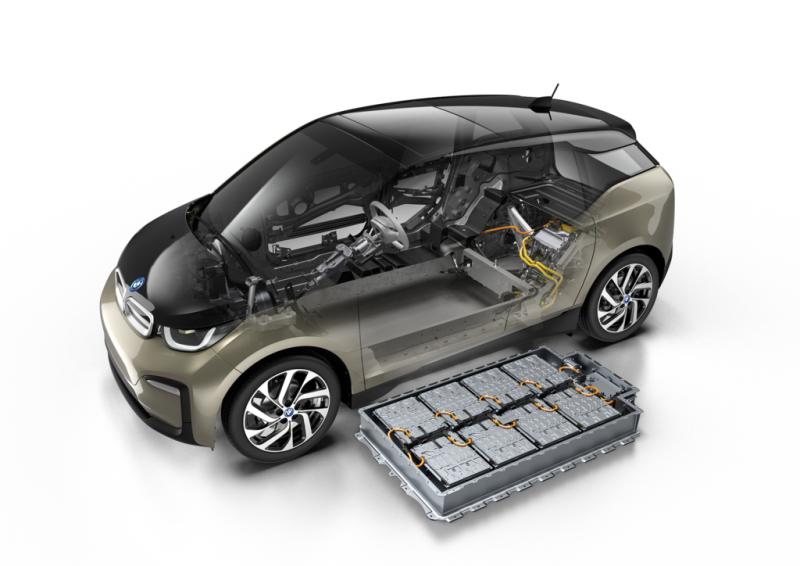What is it?
HV use two or more distinct types of power, most commonly an internal combustion engine in combination with an electric motor and uses less fuel than conventional cars. Hybrid vehicles use gasoline or diesel engines and electric batteries together to achieve optimal fuel efficiency. The electric motor is powered by batteries that are charged using energy recovered during braking or deceleration that would normally be wasted as heat. This improves fuel efficiency compared to conventional vehicles.
Working of HV
Hybrids work by capturing energy lost during braking and storing it in rechargeable batteries. This stored energy powers the car's electric motor which supplements a traditional gasoline engine. When braking or coasting, the electric motor acts as a generator to recharge the batteries. The electric motor also provides extra power assistance to the gasoline engine when accelerating from a stop or merging onto highways. This allows the use of a smaller, more fuel efficient gasoline engine since it does not have to work as hard during bursts of acceleration. These systems allow HV to use electricity stored in batteries to power the electric motor or supplement the gasoline engine.
Types of Hybrid Vehicles
There are different types of HV depending on how the internal combustion engine and electric motor are powered. The main types are:
- Parallel Hybrid: Both the gasoline engine and electric motor can power the wheels. The electric motor assists the gasoline engine or powers the vehicle alone at low speeds.
- Series Hybrid: Only the electric motor powers the wheels. The gasoline engine charges the batteries which power the electric motor. It does not directly power the wheels.
- Plug-in Hybrid Electric Vehicles (PHEV): These hybrids have larger battery packs that can be recharged by plugging into an external electric power source like a standard wall outlet. This allows greater all-electric range before switching to hybrid mode.
Advantages of Hybrid Cars
Hybrid Vehicles provide better fuel economy and lower emissions compared to conventional gasoline-powered vehicles. Some key advantages are:
- Improved Fuel Economy: Hybrids achieve 25-60% better fuel economy compared to similar gasoline-only vehicles. The fuel savings over the lifetime of the vehicle easily offsets the higher initial purchase price.
- Lower Emissions: The combination of gasoline and electric power reduces emissions and makes hybrids cleaner vehicles. The all-electric range of plug-in hybrids significantly lowers emissions in urban areas.
- Power and Performance: Hybrids provide responsive acceleration and torque from the electric motor for smooth merging onto highways. Their performance matches or exceeds similar gasoline vehicles.
- Lower Maintenance: Hybrid components require less maintenance over time compared to gasoline engines since they use smaller engines with belt-driven accessories and electrically controlled transmission.
Disadvantages of Hybrid technology
While HV provide benefits over conventional gasoline cars, they also have some drawbacks:
- Higher Initial Cost: The battery and electric motor components make hybrids more expensive than comparable gasoline-only vehicles. However, over the long-term the fuel savings outweigh the higher upfront cost.
- Battery Replacement Cost: The batteries lose capacity over time and eventually need to be replaced. Battery replacement can cost several thousand dollars, offsetting some of the lifetime fuel savings benefits.
- Complex Technology: Hybrid systems add complexity which can increase repair costs if specialized hybrid-trained mechanics are not available.
- Weight: The battery pack increases the overall weight of HV, reducing some fuel efficiency benefits.
Future of Hybrid vehicles
Major automakers are rapidly increasing their hybrid offerings due to stricter emission norms and rising fuel efficiency standards. Advanced lithium-ion battery technology is also driving costs lower and performance higher each year. More plug-in hybrids are coming to market that can drive tens of miles on all-electric power alone. As battery costs continue falling, hybrids will become even more compelling over conventional gasoline vehicles. Wider adoption of hybrids will help reduce oil dependence and lower emissions from the transportation sector. Hybrids appear poised to become a much larger part of the future automotive landscape.
Get more insights on This Topic- Hybrid Vehicles
Explore More Articles- Earphones And Headphones Market
